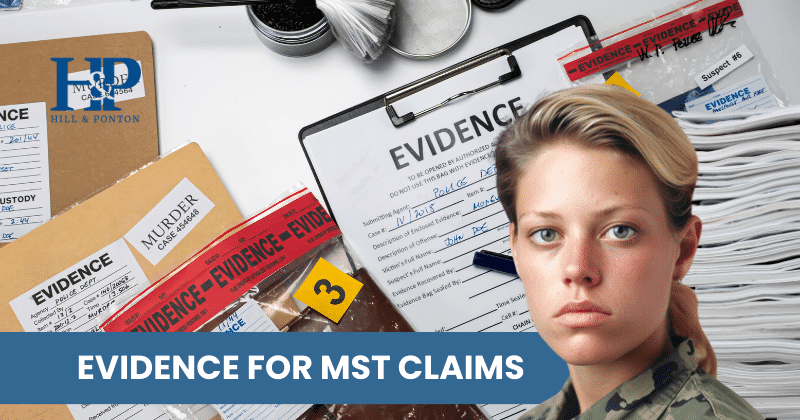Military Sexual Trauma (or MST) is a horrible experience for anyone who has been affected by it. I use the word “experience” because that is what it is. MST is not a diagnosis, but it affects a number of other diagnoses which can have an effect on a veteran’s life.
The VA describes MST as an experience of sexual assault or repeated, threatening sexual harassment that a veteran experienced during his or her military service. The definition that they employ comes from Federal law, “psychological trauma, which in the judgment of the VA mental health professional, resulted from a physical assault of a sexual nature, battery of a sexual nature, or sexual harassment which occurred while the Veteran was serving on active duty, active duty for training, or inactive duty training.” The VA further defines sexual harassment as “repeated, unsolicited verbal or physical contact of a sexual nature which is threatening in character.”
In a more concrete language, MST is any sexual activity where a service man or woman is involved against this or her will. This can be in unwanted sexual touching or grabbing, threatening, offensive remarks about a person’s body or sexual activities, or threatening and unwelcome sexual advances.. When a service member experiences these, the characteristics of the perpetrator are of no consequence. If these experiences occur while the individual is on active duty or training for active duty, they are considered to be MST by the VA.
As mentioned above, the VA does not view MST as a diagnosis. So, the VA does not grant compensation based solely on MST. Instead, there must be a compensable health condition, depression, substance abuse, anxiety disorder, or PTSD. Veterans can and do develop these conditions as a result of the MST they experience. Oftentimes, survivors of MST experience strong emotions or feelings of numbness. They may have difficulty sleeping, and trouble with paying attention, concentrating, or memory. As mentioned above, sometimes problems also manifest themselves physically such as pain or eating problems.
When a veteran experiences MST, they have a compensable claim when they can show that:
- The incident of military sexual trauma occurred while they were on duty.
- There is a current diagnosis of a mental or physical disability
- Any disabilities were caused, or aggravated, by the military sexual trauma suffered in service.
Recently, there has been more coverage about MST, but you still may find yourself wondering just how common it is. The VA conducts a national screening process. In this process every veteran seen for health care is asked whether he or she experienced MST. This screening has shown that about one in four women and one in a hundred men experience MST while in active duty. What is also significant to keep in mind is that these numbers only represent those who check “yes” when filling out the survey given by the VA.
With this in mind, the VA does not require that a veteran’s medical records provide “proof” of the assault or harassment. Their standards allow for a number of other types of proof of the incident(s) which include, but are not limited to:
- Police records and/or records from a rape crisis center
- Lay statements or buddy statements from friends, family or other individuals the veteran may have talked with.
- Pregnancy tests or tests for STDs
- Diaries or journals kept during the time of the MST.
The VA will also accept behavioral changes, such as:
- Marital or sexual problems
- Evidence of drug or alcohol abuse
- Transfer request documentation
- Job performance changes, or
- Incidents of anxiety or depression.
It is worth noting that, while the VA accepts many types of proof, it is often difficult to have service connection granted for MST. Many veterans feel that a denial of benefits trivializes their claim and experience. Many veterans who experienced MST were discharged for a personality disorder or are denied benefits because of this diagnosis. In these cases, the veteran can seek to have their diagnoses changed from personality disorder to PTSD, and, in so doing, get the benefits they deserve. The VA will grant benefits for PTSD and other mental health problems, but not for personality disorder.
While discussing MST, this post could not be complete without giving some resources for individuals who have experienced MST or know someone who has. If you feel like you have experienced MST, you can always talk with your current health provider, or contact the MST Coordinator at your local VAMC. If you’d rather talk with someone confidentially, there is a Safe Helpline for the Department of Defense community at 1 (877)-995-5247. You can also learn about VA MST services here.
Thank you for your service.



